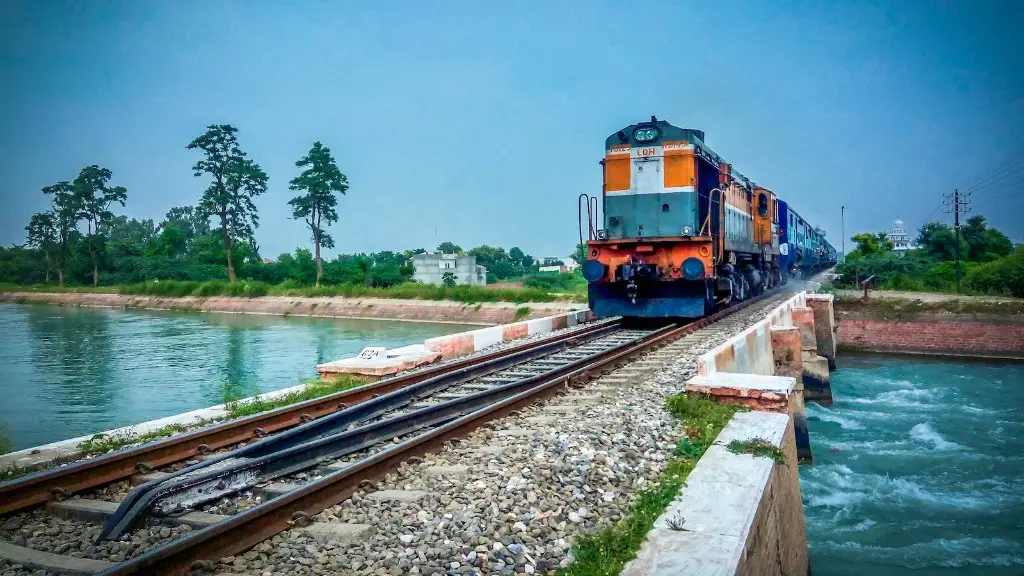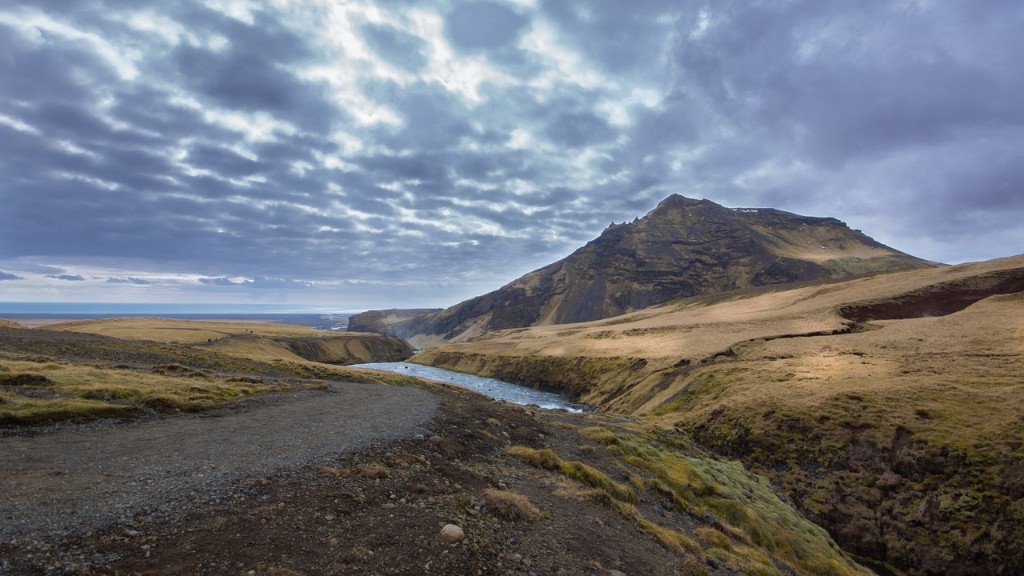The Nile River has played a huge role in shaping ancient Egypt. The ancient Egyptians were highly dependent on the Nile for many aspects of their lives, from providing fresh water to sustenance, and it was their exceptional use of the river’s resources that helped them to create one of the greatest civilizations the world has ever seen. In this article, we will explore the many ways in which the Nile River shaped ancient Egypt and how it helped to create the vibrant culture and society we know today.
The most obvious answer to the question of how the Nile River shaped ancient Egypt is that it enabled the ancient Egyptians to irrigate and cultivate their land. The perennial flow of the Nile River and its regular flooding period provided the Egyptians with a reliable source of fresh water, allowing them to irrigate and fertilize the land. This enabled them to produce a surplus of food, which was essential for the growth of their society. In addition, the fertile soil was also used to grow a variety of crops, such as wheat, barley, and flax, all of which were vital for the Egyptians’ survival.
The Nile River was also integral in providing the Egyptian civilization with transportation and communication. For example, the river enabled the Egyptians to easily trade with other empires, exchange goods, and spread their influence. Additionally, it was used to transport supplies and materials from place to place, making it an effective means of transportation. Finally, the Nile was also used to transmit messages between different parts of the nation quickly and efficiently.
The Nile River also had an important role in shaping ancient Egyptian society. The Nile was considered a source of life, and the Gods were believed to be directly responsible for the river’s flow. As a result, the river was seen as a blessing from the gods, and it was deeply revered by the people of ancient Egypt. The religion and culture of ancient Egypt were also greatly influenced by the Nile River, with many of their gods and rituals being based around it.
Finally, one cannot overlook the fact that the Nile played a crucial role in the development of ancient Egyptian architecture. The systematic use of two-tiered irrigation systems and inundation canals enabled the ancient Egyptians to use the river to build monuments and cities, including the pyramids. Furthermore, the reed boats used for navigating the waters of the Nile also helped to create the great transportation networks that allowed the Egyptians to explore and expand their empire.
Impact of the Nile on Religion
The Ancient Egyptians had a polytheistic belief system with the Nile River playing an important role in their religion. It was revered as the source of life, with the gods believed to be directly responsible for its flow. The Nile was seen as a blessing from the gods and thus its rhythm was closely followed by the Egyptians as they celebrated festivals that were related to the rise and fall of the River.
The Nile also played an important role in the creation of the various gods in Ancient Egypt. For example, one of the gods, Hapi, was the god of the Nile. Hapi was viewed as the source of fertility, abundance and well-being in Ancient Egypt, an association that tangibly connected the Divinity to the Nile. Additionally, it is believed that a deity known as ‘Khnum’ was responsible for keeping the Nile in balance.
The religion of Ancient Egypt was also influenced by the Nile, with many of its rituals being based around the river. For example, one of the rituals associated with the river was the ‘coming of the Inundation’. This ritual was performed when the Nile started to flood, which was seen as a blessing from the gods, a sign of fertility and growth.
The most important religious festival associated with the Nile was the ‘Festival of Opet’. This was a festival held every year and was celebrated by floating a statue of the God Amun down the Nile. The festival was held to ask for good fortune from the gods and to celebrate the relationships the Egyptians formed with the gods.
Effects of the Nile on Agriculture
The agricultural production of Ancient Egypt was closely linked with the Nile’s seasonal flooding. This is because the rising waters brought rich silt to the river’s banks, enabling fertile soil and optimal growing conditions. As a result, the Ancient Egyptians were able to cultivate the land and make use of this resource to grow crops. And due to the nature of the Nile, the area would be replenished with silt on a yearly basis, ensuring a high yield of crops.
The ancient Egyptians were able to produce a wide variety of crops thanks to the conditions offered by the Nile, including wheat, barley, emmer, chickpeas, lentils, flax, and dates. Additionally, the river made it possible to cultivate cotton which was grown in the Delta region of Ancient Egypt. The products of the Nile River’s fertility were crucial to the ancient Egyptians and provided them with food and building materials.
And finally, the Nile River enabled the ancient Egyptians to set up a reliable system of irrigation. This allowed them to maximize the use of the land for agriculture, making it possible to grow a variety of crops in one season. The irrigation system, which included a combination of canals and pumps, enabled the Egyptians to efficiently channel water from the river and distribute it to the land. The system was so effective that it served as the precursor to modern irrigation systems.
The Role of the Nile in Trade
The Nile River was also an essential part of trade for ancient Egypt. As it stretched much longer than any of their land routes, it made it easier for them to move goods and materials to different areas of the empire quickly and efficiently. As such, cities, workshops and marketplaces were strategically placed along the river, allowing them to profit from the lucrative trading opportunities.
The Nile River also enabled the ancient Egyptians to trade with other empires and furthered the development of the world’s earliest maritime naval fleets. For example, the Egyptians sent ships to various regions around the Mediterranean Sea in order to establish trade routes and expand their empire. This allowed them to increase their wealth, gain access to new resources, and share knowledge with other civilizations.
Finally, the Nile River also played a role in communication for the Egyptians. By sailing along the river, they were able to quickly spread news from one city to another and long-distance communication was made much more efficient. This made it easier for them to send messages and accurately receive news about the goings on in different cities and countries.
Impact of the Nile on Monumental Architecture
Ancient Egypt is well-known for its impressive monuments and sophisticated architecture. Much of this was thanks to the Nile River and its ability to provide a stable and reliable source of water. This enabled the Egyptians to commission large-scale projects and build impressive monuments, such as the Great Pyramids of Giza.
The Egyptians were also able to utilize the river’s resources to develop two-tiered irrigation systems. This allowed them to channel water from the Nile to different points of the land, creating canals and allowing the Egyptians to further develop their civil engineering skills. The Nile also enabled them to establish a network of roads and transportation links, allowing them to quickly and efficiently move goods and resources all across the nation.
Finally, the Nile River also helped to create the great transportation networks that allowed the Egyptians to explore and expand their empire. Their reed boats, known as “Barks”, were used to navigate the waters of the Nile, enabling them to travel to far away places and different parts of their empire with relative ease.
Political and Economic Effects of the Nile
The Nile River was a major factor in the political and economic structure of Ancient Egypt. This is primarily because the river enabled them to trade with distant lands and easily access resources that were otherwise inaccessible. It also allowed them to expand their empire and travel far and wide to explore new lands. As such, the Ancient Egyptians were able to capitalize on the resources of the region and build a powerful and prosperous civilization.
The political and economic power of Ancient Egypt was also reinforced by a unified system of agriculture. Thanks to the Nile’s annual flooding, the Egyptians were able to establish a reliable irrigation system, enabling them to irrigate and fertilize the land. This allowed them to produce a surplus of food, which made the nation more stable and secure. Furthermore, it allowed them to develop an impressive trading network, creating an economy that was prosperous and self-sustaining.
The Nile also enabled the Ancient Egyptians to establish large cities and monuments, thanks to its reliable water supply. The constant flow of the river also made it possible to fert





